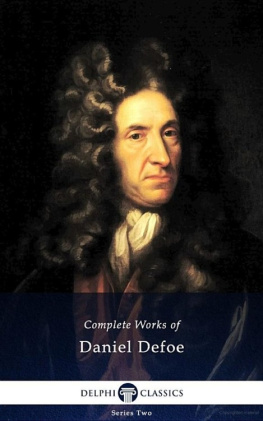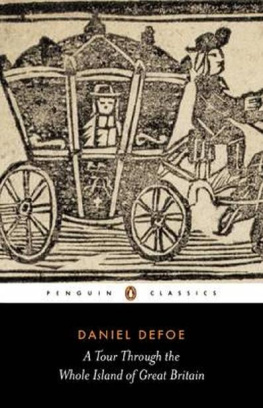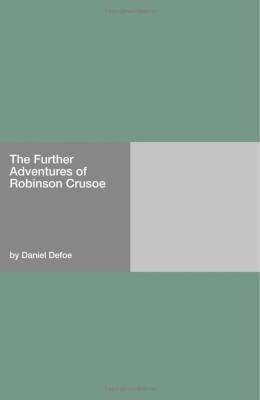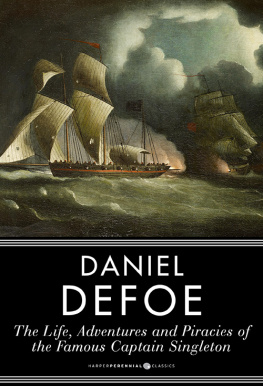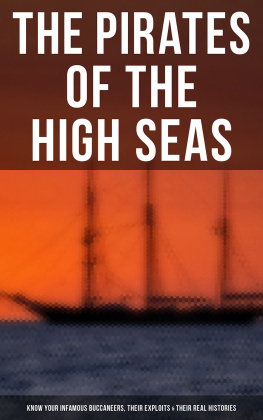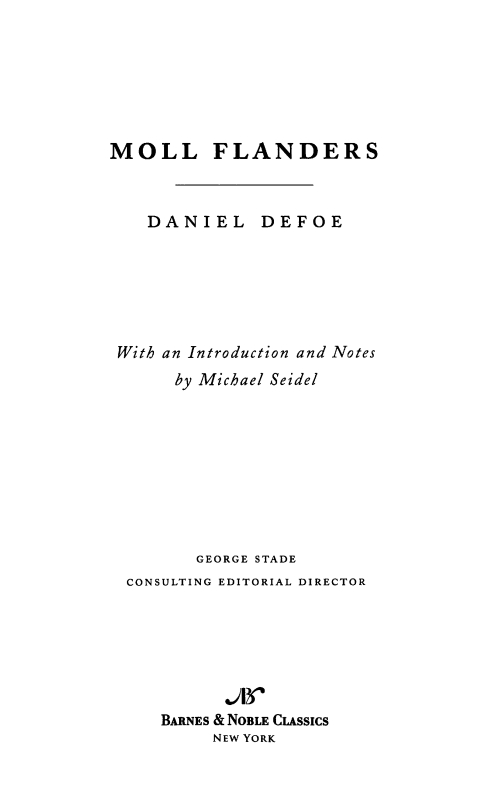
Table of Contents
FROM THE PAGES OFMOLL FLANDERS
It is enough to tell you, that as some of my worst comrades, who are out of the way of doing me harm (having gone out of the world by the steps and the string, as I often expected to go), knew me by the name of Moll Flanders, so you may give me leave to go under that name till I dare own who I have been, as well as who I am.
(page 11)
I had with all these the common vanity of my sex, viz., that being really taken for very handsome, or, if you please, for a great beauty, I very well knew it, and had as good an opinion of myself as anybody else could have of me; and particularly I loved to hear anybody speak of it, which happened often, and was a great satisfaction to me.
(page 21)
So naturally do men give up honour and justice, and even Christianity, to secure themselves.
(page 54)
Vanity is the perfection of a fop.
(page 58)
Nothing but want of courage for such an indifferency makes our sex so cheap, and prepares them to be ill used as they are; would they venture the loss of a pretending fop now and then, who carries it high upon the point of his own merit, they would certainly be slighted less and courted more.
(page 75)
He often repeated the same moderation, and I frequently lay with him, and although all the familiarities of man and wife were common to us, yet he never once offered to go any further, and he valued himself much upon it. I do not say that I was so wholly pleased with it as he thought I was, for I own I was much wickeder than he.
(page 105)
It might be expected that I should give some account of the nature of the wicked practices of this woman, in whose hands I was now fallen; but it would be but too much encouragement to the vice, to let the world see what easy measures were here taken to rid the womens burthen of a child clandestinely gotten.
(page 152)
I often reflected how my lover at the Bath, struck by the hand of God, repented and abandoned me, and refused to see me any more, though he loved me to an extreme; but I, prompted by that worst of devils, poverty, returned to the vile practice, and made the advantage of what they call a handsome face to be the relief to my necessities, and beauty be a pimp to vice.
(page 170)
Though by this job I was become considerably richer than before, yet the resolution I had formerly taken of leaving off this horrid trade when I had gotten a little more, did not return, but I must still get more; and the avarice had such success, that I had no more thoughts of coming to a timely alteration of life, though without it I could expect no safety, no tranquility in the possession of what I had gained; a little more, and a little more, was the case still. (page 190)
The story has not so much laughing-room in it as you imagine.
(page 227)
I had 700 by me in money, besides clothes, rings, some plate, and two gold watches, and all of them stolen.
(page 231)
I grew more hardened and audacious than ever, and the success I had made my name as famous as any thief of my sort ever had been.
(page 239)
How hell should become by degrees so natural, and not only tolerable, but even agreeable, is a thing unintelligible but by those who have experienced it, as I have.
(page 251)
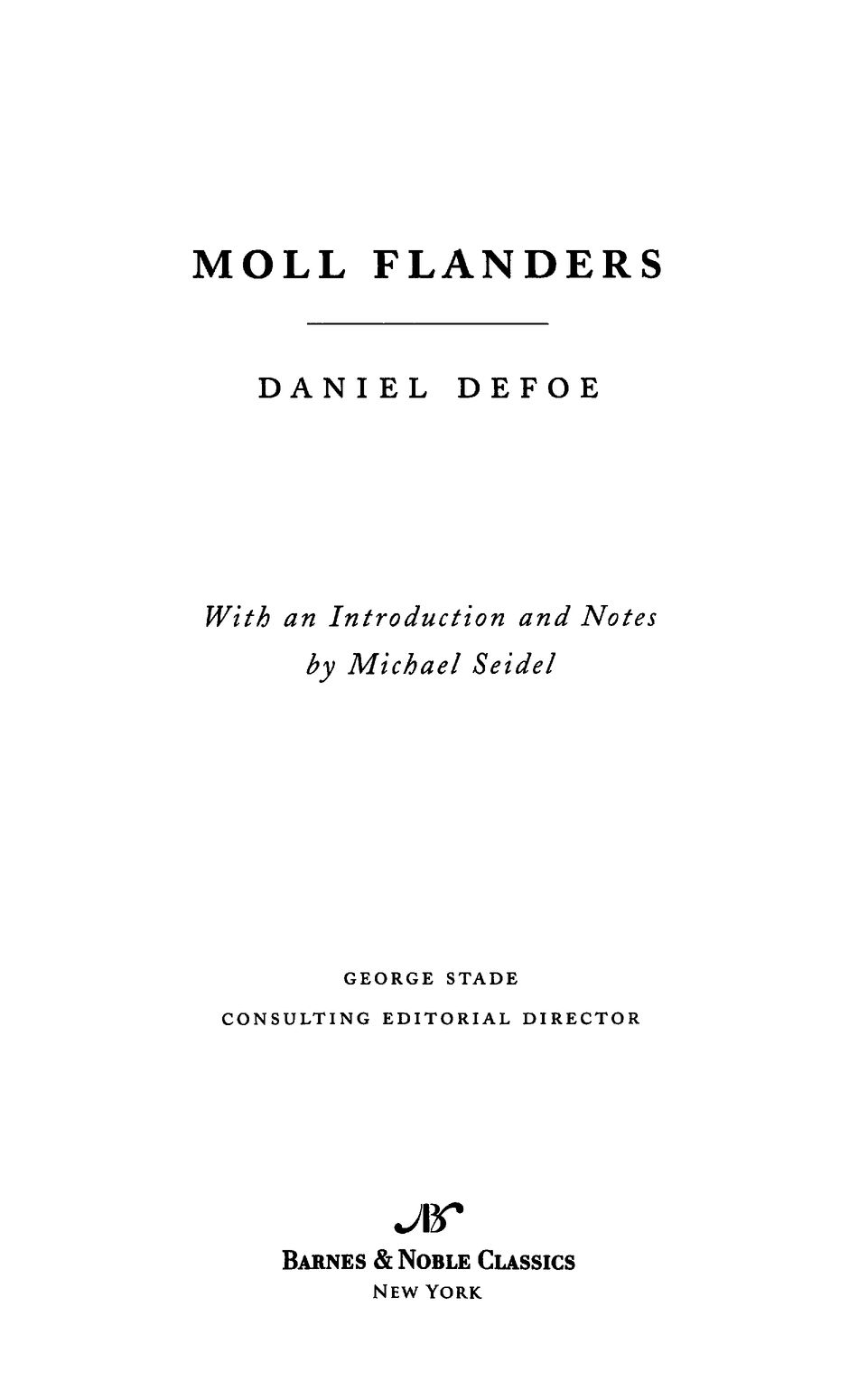
DANIEL DEFOE
Secret agent, political provocateur, merchant, rebel, and writer, Daniel Defoe led a life as fascinating and enduring as those he recounted in his novels. He was born in London in 1660 to James Foe, a candle merchant and butcher of Flemish descent. In his childhood Daniel survived a deadly resurgence of the bubonic plague in 1665 that killed thousands of Londoners, and he witnessed the Great Fire of London in 1666. As a Dissentera Protestant who did not belong to the Church of EnglandDefoe was excluded from studying at Cambridge or Oxford; instead he received an excellent education under the Reverend Charles Morton, who would become one of the first administrators of Harvard College.
By his early twenties Defoe had established himself as a merchant, selling all manner of goods, including hose, tobacco, wine, and the secretions of civet cats used in perfumes. He married Mary Tuffley, daughter of a wealthy merchant, in 1684; the couple had eight children during their long marriage, which ended with Defoes death forty-seven years later.
Defoes great interest in politics entrenched him in the political turmoil of his times, and he soon earned a sizable reputation as a pamphleteer. His wildly popular poem The True-Born Englishman (1701) challenges English sentiment against Dutch-born King William III of Orange; his most famous pamphlet, The Shortest Way with the Dissenters (1702), is a response to the attacks launched against Dissenters when William died and Queen Anne took the throne. The tract landed Defoe in Newgate Prison, which he would faithfully depict in Moll Flanders, and upon his release he went into service as a pamphleteer and information-gatherer for a moderate and influential member of government, Robert Harley. In 1704 Defoe launched The Review, a highly regarded political journal that he wrote and edited until 1713. He emerged as a novelist with the publication in 1719 of the well-received account of a castaway The Life and Strange Surprising Adventures of Robinson Crusoe, and he appeased the appetites of his reading public by publishing three nov els in a single year, 1722: Moll Flanders, Colonel Jack, and A Journal of the Plague Year. He published one more novel, The Unfortunate Mistress: Roxana, in 1724, then turned his hand to nonfiction again, with works that include the three-volume A Tour Through the Whole Island of Great Britain, published between 1724 and 1727. Daniel Defoe died, in debt and mired in legal battles but widely respected as a writer and political thinker, in April 1731 in a London boardinghouse.
THE WORLD OF DANIEL DEFOE AND MOLLFLANDERS
| 1660 | Daniel Defoe is born in London, the son of James Foe, a candle merchant and butcher of Flemish descent. The monarchy, overthrown by Oliver Cromwell during the English Civil Wars earlier in the century, is restored, and Charles II ascends the throne. |
| 1665 | Bubonic plague breaks out in London, killing as many as 75,000 of the citys 450,000 inhabitants. |
| 1666 | The Great Fire of London destroys much of the city. |
| 1671 | Barred from attending Oxford or Cambridge because he is a Dissenter (as Protestants not conforming to the doctrines of the Church of England were known), Defoe enters Reverend Charles Mortons academy to prepare for the Presbyterian ministry. Under Morton, who later will become the first vice president of Harvard College, he receives an excellent education, but he does not enter the ministry. |
| c.1682 | Defoe establishes himself as a merchant, trading in hosiery, tobacco, wine, and other goods. His business dealings take him to several European countries, where he acquires knowledge of many languages. |
| 1684 | Defoe marries Mary Tuffley, daughter of a prosperous Dissenter merchant who brings with her a substantial dowry. The couple will have eight children, and the marriage will last until Defoes death forty-seven years later. |


